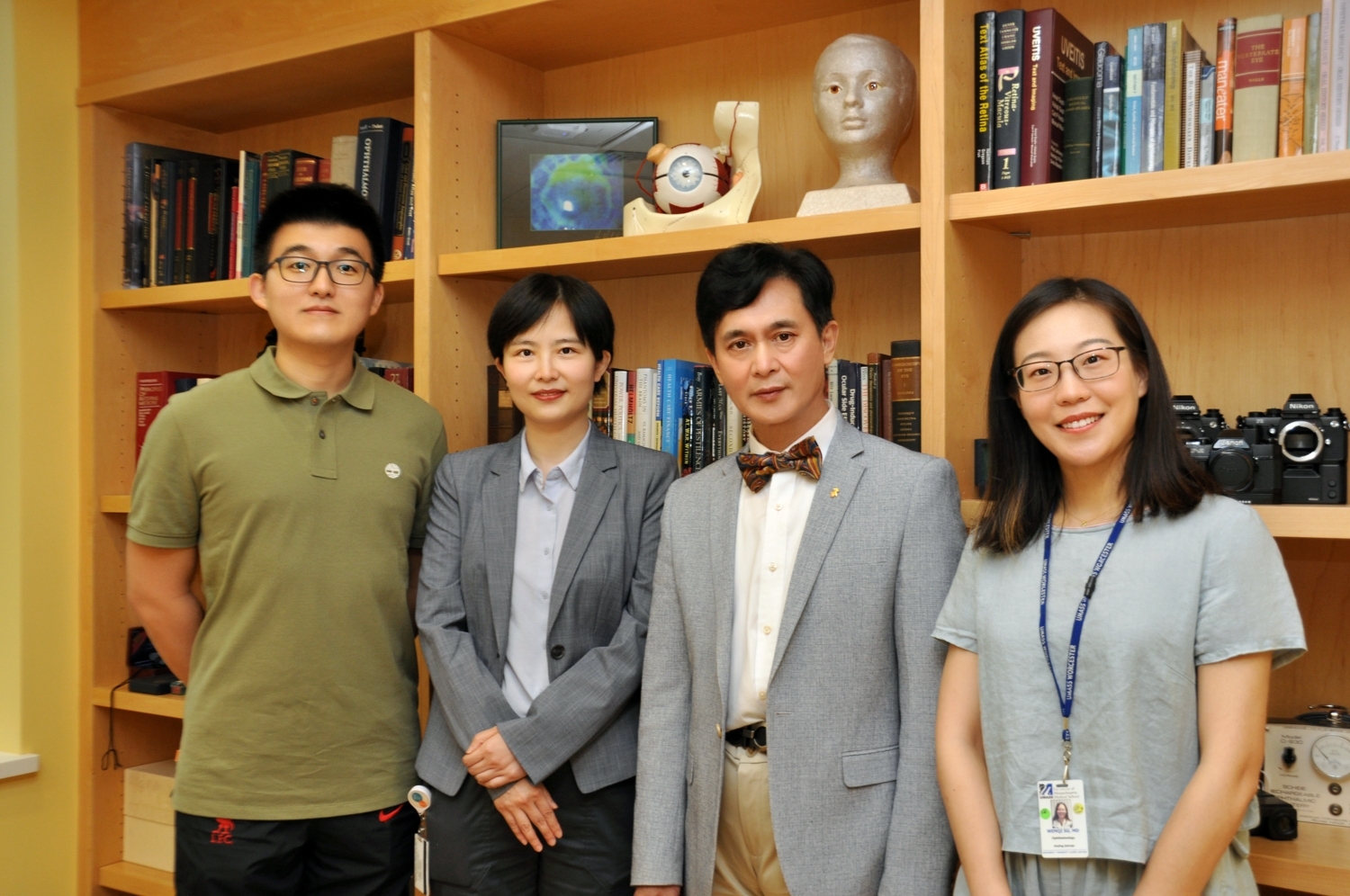Gene Therapy of Cornea Neovascularization
Date Posted: Sunday, July 11, 2021The lab of Haijiang Lin, MD, PhD, and Bo Tian, MD, PhD, from the Department of Ophthalmology and Visual Sciences at the UMass Chan Medical School, collaborated with Ganging Gao, PhD, and Phillip W. L. Tai, PhD, at Horae Gene Therapy Center to expand the development and application of gene therapy in a variety of ocular diseases, including glaucoma, cornea and retina diseases, etc. Recently, they successfully established a novel efficacious and safe gene therapy strategy for treatment of cornea neovascularization.
This study was patented and published in Molecular Therapy-Methods & Clinical Developments, and was selected as an oral presentation in the Association for Research in Vision and Ophthalmology (ARVO) 2021 and the American Society of Gene & Cell Therapy (ASGCT) 2021. Dr. Lin got invitation to present this study in International Conference on Microbiology & Infections Disease in Rome, Italy 2021.
Co-first author of the study, Wenqi Su, MD, said, “Corneal neovascularization caused by a variety of pathologies leads to visual impairment and affects over 1.4 million people in the United States per year. Current treatments include topical steroids and nonsteroid anti-inflammatory administration, laser cauterization, fine-needle diathermy, amniotic membrane transplantation, etc. But all above methods have limited efficacies and come with related side effects.
The successful application of anti-VEGF agents in choroidal neovascularization has led to a surge of interest and testing of these agents for their capacity to manage corneal angiogenesis in animal models and clinical trials. However, because of their short half-lives, the limited durability of these anti-VEGF proteins is an evident obstacle to achieve sustainable and efficacious outcomes for corneal neovascularization. Thus, we vectored conbercept, a widely used anti-VEGF drug, to explore more efficacious, safe, and long-lasting treatments for corneal neovascularization.”
Another co-first author, Shuo Sun, MD, then concluded, “Currently, there are several anti-VEGF agents mainly used in the ophthalmology clinic to treat retinopathies. These include bevacizumab, ranibizumab, aflibercept and conbercept, etc. All of these agents have high binding affinity to VEGF and they block the VEGF signaling pathway with high efficiency. However, up to now only one product (aflibercept) has been vectorized and tested in clinical trials for retinal diseases, and none of them have been reported to treat corneal diseases as a vectored transgene for therapy.
Our report represents the initial study to engineer the clinically proven anti-VEGF drug, conbercept, into AAV vectors to treat corneal neovascularization. More importantly, we demonstrate that our vector construct (rAAV-KH902) is efficacious, safe and confers stable inhibition of corneal neovascularization following one dose. We hope our efforts in this study can provide strong support for the future translation of AAV-based gene therapy of corneal neovascularization.”
Drs. Lin and Tian will continue the collaboration with excellent gene therapy scientists, Drs. Gao and Tai, to develop more novel therapeutic strategies for ophthalmology patients, in combination with a better understanding of the pathophysiology of eye diseases driven by our ongoing basic and translational research.
 (Left to right) Shuo Sun, Bo Tian, Haijiang Lin, Wenqi Su
(Left to right) Shuo Sun, Bo Tian, Haijiang Lin, Wenqi Su
